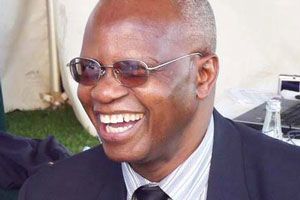
BARTER trade, an archaic system of exchanging good or services before money was widely accepted as medium of exchange, has resurfaced in Zimbabwe.
BY NDAMU SANDU
To circumvent prevailing liquidity challenges, companies have resorted to barter trade as a medium of exchange after struggling to pay for goods or services rendered.
Barter trade involves the exchange of goods for goods or services.
Recently workers at Meikles Limited told the parliamentary thematic committee on Indigenisation and Economic Empowerment that the group was giving retired workers plates or hotel accommodation for them and their spouses.
“I was surprised when I heard retiring staff from Meikles [waiters] were given dinner plates and two or three nights at the hotel with their wives as pension,” Tanganda Tea Company workers’ committee chairperson Simon Madzivire told the committee. Analysts say the prevalence of barter trade was a product of the liquidity squeeze.
“In the Zimbabwe dollar era it was a question of the currency not being wanted. In this case it’s a question of the currency being unavailable,” independent economist Moses Chundu said. He said barter trade was a distortion but this “was a danger of an economy which is largely informal” and people want imported goods. “It’s so structural until government figures out how it produces more for exports and cut on imports,” Chundu said.
The economy is 84% informal according to estimates, meaning that a huge chunk is not contributing to the tax collector.
Finance and Economic Development minister Patrick Chinamasa told Parliament last year that the old economy was dead and a new one based on the informal sector had been born, urging financial institutions to cater for the small to medium sized enterprises.
Economist John Robertson said resorting to barter trade was a stop gap measure to alleviate the tight liquidity situation. He said through barter trade, it was clear that the economy was dealing with the symptoms and not the problem.
“We need to attract investors because they bring money which helps in improving the liquidity situation,” he said.
“Government is discouraging investors who have choices to make as there are over 100 countries in the world where they can invest in.”
Robertson said barter trade would bring difficulties at the end of the day as companies need to convert the goods into cash to pay workers’ salaries.
Gilbert Muponda — who runs an economic, financial, business, research and advisory services firm — said barter trade limited trade and investment.
“It slows down the trade and transactions as people may end up holding stocks of merchandise they don’t want or have a market for such stocks,” he said.
Muponda said the only way out of the liquidity crisis was to negotiate with South Africa and make the Rand the only legal tender and make Zimbabwe part of the Rand Monetary Union.
“This makes sense as the Rand is a relatively weak currency compared to the US$ plus Zimbabwe economy has common features with South Africa. You cannot use a hard currency in an economy where the fundamentals are soft or weak,” he said.
“Low employment rates, poor salaries, low aggregate demand, low exports and high imports and general depressed economic activity due to negligible investment levels.
“Only tobacco sub sector seems doing well benefiting from capital injected through contract farming.”
Money plays four key functions — unit of value, medium of exchange, standard of deferred payments and store of value. Money measures the value of goods and services produced in an economy and as such it becomes the unit of value.
Experts say this function is not possible under barter trade. Money is also the basis of deferred payments.
As a store of value, people can store surplus purchasing power and use it whenever they want.
By facilitating accumulation of money, it becomes the only basis of promoting capital formation.
Analysts say government has to create more exports revenue which is the fuel that drives the economy in the absence of foreign direct investment, lines of credit and balance of payment support.











